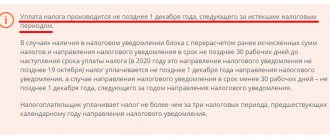An exhaustive list of types of criminal penalties is given in Article 44 of the Criminal Code of the Russian Federation. One of the types of criminal punishment is correctional labor (Article 50 of the Criminal Code of the Russian Federation).
Correctional work involves:
- forced labor for a certain period of time;
- attracting to work persons who have a main place of work, as well as those who do not have one;
- departure to the main place of work or to places determined by local government bodies in agreement with the penal inspections in the area of residence of the convicted person;
- deduction of a certain share of the convicted person’s earnings to the state.
Correctional labor is a more severe type of punishment than compulsory labor and is assigned only as the main type of punishment.
The procedure and conditions for the execution of punishment in the form of correctional labor are regulated by the norms of Chapter 7 of the Criminal Executive Code of the Russian Federation (Articles 39 - 46 of the Penal Code of the Russian Federation).
What monetary payments received by a convicted person are not withheld?
Deductions are made from wages at the main place of work of the convicted person for each month worked when paying wages, regardless of whether there are claims against him under enforcement documents.
At the same time, deductions are not made from benefits received by the convicted person in the order of social insurance and social security, from lump-sum payments, with the exception of monthly insurance payments for compulsory social insurance against industrial accidents and occupational diseases.
In cases of cancellation or change of a court verdict with the termination of the case, the amounts excessively withheld from the wages of the convicted person are returned to him in full.
Serving order
Immediately after the verdict enters into legal force, a copy of it is sent to the penal institution at the district level. Employees of this institution participate in the execution of all types of imposed punishment, with the exception of imprisonment.
The convicted person is registered and a personal file is opened on him. The order of execution is as follows:
- No later than 30 days from the date of announcement of the verdict, an inspector will visit the convict’s place of residence and hand him a summons. It will indicate the date and time for appearing at the criminal correctional inspection for registration.
- On the day of appearance, a conversation is held with the convicted person and his rights are explained, finding out what activities he can perform.
- Next, the convict receives a referral to the selected organization where he will work. The appearance is carried out within 5 days.
- On a certain day, the inspector checks the citizen’s attendance by calling the appropriate organization.
- The inspector keeps records of the hours worked by the convicted person, as well as the amount of payment. At the end of correctional work, he makes a note about the end of his labor activity.
What is the difference between correctional labor and compulsory labor? Find out the answer right now.
Correctional work. To whom, for what, how:
https://youtube.com/watch?v=akylHIx35Gs%3Fecver%3D1
Replacement of punishment in case of evasion from serving correctional labor
The concept of malicious evasion from compulsory work is given in Art. 46 of the Penal Code of the Russian Federation.
When deciding whether evasion from serving correctional labor is malicious, courts need to check whether the warnings specified in Part 2 of Art. 46 of the Penal Code of the Russian Federation.
According to Part 4 of Art. 50 of the Criminal Code of the Russian Federation, in the case of a person’s malicious evasion from serving correctional labor, the court has the right to replace the unserved term of this type of punishment with forced labor or imprisonment for a term of less than two months (respectively, at the rate of one day of imprisonment or forced labor for three days of correctional labor). These provisions are applied by the court regardless of whether the punishment in the form of forced labor or imprisonment is provided for by the sanction of the article of the Special Part of the Criminal Code of the Russian Federation under which the punishment was imposed. At the same time, replacing correctional labor with deprivation of liberty is also allowed in relation to those convicted who, in accordance with Part 1 of Art. 56 of the Criminal Code of the Russian Federation cannot impose a sentence of imprisonment.
Correctional centers and the regime in them
Forced labor is not freedom at all, although it is believed that it is a punishment not related to imprisonment. Compulsory labor must be served in a special center with its own regime, and the terms of service in the case of commutation of imprisonment remain the same.
Correctional centers are certain facilities subordinate to the Federal Penitentiary Service, in which convicts live for the entire sentence assigned to them (60.1 Penal Code).
Generally speaking, this is a fenced, guarded area with a dormitory and service buildings.
In fact, different correctional centers differ in their regime from each other.
Please note: the examples below may not be representative of any specific center.
There are correctional centers created on the basis of colonies - the regime there is stricter. Essentially, this is an area attached to the colony with armed guards, a “ban”, and even food is brought to the center from the colony.
The employees of such a center are the same employees of the colony, so they get confused with the regimes and “go too far” in terms of the severity of supervision. Just as they are used to working in a colony, they work in a correctional center.
And there are correctional centers based on “chemistry” - everything is much softer there.
“Chemistry” is a common name for the same forced labor that existed in Soviet times. At that time, work was mainly sent to chemical industry enterprises, hence the name.
At the "chemistry" station there may be free exit from the center on weekends, a watchman at the entrance, less strict security checks and generally milder living conditions.
For example, in the colony center you can’t lie on your bed during the day, but you can during chemistry.
Explanations of the Supreme Court of the Russian Federation on the assignment of correctional labor
Issues of the practice of imposing criminal punishment in the form of correctional labor are explained in paragraphs 14 - 16 of Resolution of the Plenum of the Armed Forces of the Russian Federation dated December 22, 2015 N 58 “On the practice of imposing criminal punishment by the courts of the Russian Federation.”
The specifics of assigning correctional labor to minors and replacing this punishment are explained in Resolution of the Plenum of the Armed Forces of the Russian Federation dated 01.02.2011 No. 1 “On the judicial practice of applying legislation regulating the specifics of criminal liability and punishment of minors.”
Application of compulsory work in practice
Local authorities have the right to determine the organization and form of work execution. As a rule, such work does not require high professional skills. In most cases, city authorities provide labor activities aimed at improving public places.
As practice shows, the main types of work are:
- Planting green spaces on the streets.
- Digging up trees in parks, alleys, squares.
- Loading and unloading materials.
- Painting borders.
- Garbage collection at public transport stops, sidewalks, and along the sides of roadways.
The form of ownership of the enterprise or organization where the convicted person carries out the court decision does not play any role. Assignments are given taking into account age, physical development and the presence of contraindications for general health.
Examples of the use of compulsory labor are the facts of court decisions under Article 49 to supporters of A. Navalny. Courts in several Russian cities applied this rule to proxies of opposition representatives. The reason was campaigning in support of his candidacy for the post of head of state.
Protests took place in several regions of Russia. Seven supporters were punished with labor ranging from 20 to 120 hours. The court sentenced one protest participant to 20 hours of compulsory labor for ignoring the payment of a fine.
How much will a criminal case be started?
Article 157 of the Criminal Code of the Russian Federation states that in order to bring to criminal liability, an administrative case must be opened against the debtor under Article 5.35.1 of the Code of Administrative Offenses of the Russian Federation.
And this article states that the debtor must fail to pay alimony for 2 or more months in a row. Therefore, if the alimony payer must pay 10,000 rubles per month, then for 2 months the amount will be 20,000 rubles.
After this, he is brought to justice, fined or arrested. If after this the alimony payer misses at least one payment, then a criminal case will be opened against him.
If alimony is set as a percentage of income, then the amount is calculated as follows: Salary * Percentage of alimony * 3
For example, if the payer’s salary is 40,000 rubles, and alimony for 1 child is set at 25%, then the amount is calculated as follows: 40,000 * 0.25 * 3 = 30,000 rubles. In case of this debt, a criminal case will be opened against the debtor if you write all the statements on time.
If the debtor must pay a flat amount, then simply multiply this amount by 3.
Commentary to Art. 50 of the Criminal Code of the Russian Federation
Correctional labor is a more severe type of punishment than compulsory labor and is assigned only as the main type of punishment. According to Part 1 of Art. 50 of the Criminal Code of the Russian Federation, correctional labor is assigned to a convicted person who does not have a main place of work, and is served in places determined by the local government body in agreement with the body executing the punishment in the form of correctional labor (the penal inspection), but in the area of the convicted person’s place of residence (implementation of one from penitentiary principles: execution of punishment at the place of residence of the convicted person). Correctional labor is assigned for a period of two months to two years (Part 2 of Article 50 of the Criminal Code of the Russian Federation).
When determining the presence of a main place of work, one should proceed from the provisions of the Labor Code of the Russian Federation (LC RF) that labor relations arise between an employee and an employer on the basis of an employment contract (Article 16 of the Labor Code of the Russian Federation), and that the employer (with the exception of employers - individuals who are not individual entrepreneurs) maintains work books for each employee who has worked for him for more than five days, in the case where work for this employer is the main one for the employee (Article 66 of the Labor Code of the Russian Federation). Thus, the presence of a main place of work will be determined based on the existence of an employment contract and the place where the work record book is kept. But the main place of work should also be considered the work of persons engaged in entrepreneurial activities, i.e. independent activity carried out at one's own risk, aimed at systematically obtaining profit from the use of property, sale of goods, performance of work or provision of services by persons registered in this capacity in the manner prescribed by law (Article 2 of the Civil Code of the Russian Federation).
Correctional labor is not assigned to disabled people of the first group, pregnant women and women with children under three years of age; military personnel undergoing military service on conscription, military personnel undergoing military service under a contract in the positions of privates and sergeants, if at the time of the court’s verdict they had not served the established period of conscription service (Part 5 of Article 50 of the Criminal Code of the Russian Federation).
This type of criminal punishment without depriving the convicted person of liberty has a rich history. Without considering this issue in detail, we only note that before the entry into force of the new Criminal Code of the Russian Federation on January 1, 1997, correctional labor in law and in practice was of two types: correctional labor at the place of work of the convicted person and, the second type, at the place specified by the authority in charge of execution of the sentence. After the entry into force of the Criminal Code of the Russian Federation, correctional labor remained only of one type and was assigned to persons with work.
Currently, correctional labor is assigned to a person who does not have a main place of work.
Bearing in mind that correctional labor involves the involvement of a convicted person, as a rule, in physical labor, the court must ascertain the ability to work of such a person, his place of permanent residence and other circumstances indicating the possibility of executing this punishment, including those specified in Part 5 of Art. 50 of the Criminal Code of the Russian Federation.
When imposing punishment for a set of crimes, for each of which correctional labor is assigned, when applying the principle of full or partial addition of punishments, only the terms of correctional labor are subject to addition.
The content of correctional labor consists in the obligation of an able-bodied person to find employment in places determined by the local government body in agreement with the body executing the punishment, but in the area of residence of the convicted person and the person serving the term specified in the court verdict at the place of work, as well as in deduction to the state income from five to twenty percent of the prisoner’s earnings (Part 3 of Article 50 of the Criminal Code of the Russian Federation). While serving a sentence, the convicted person is limited in a number of other rights. For example, during the period of serving correctional labor, convicts are prohibited from leaving work at their own request without permission in writing from the penal inspection; annual paid leave of eighteen working days is provided by the administration of the organization in which the convict works, in agreement with the penal inspection, etc. .d.
It is in these restrictions that the punitive content of correctional labor lies.
It should be borne in mind that when making deductions, the size of both the monetary part of earnings and wages in kind, if any, are taken into account. However, no money is withheld from Social Security and Social Security benefits, with the exception of unemployment benefits. Money is also not deducted from travel expenses and compensation for unused vacation.
Those sentenced to correctional labor can serve their sentences in enterprises, institutions and organizations of any form of ownership (state, municipal, cooperative, private). Corrective work is carried out by penal inspections. They keep records of those convicted; explain the procedure and conditions for serving the sentence; monitor compliance with the conditions of serving sentences by convicts and compliance with the requirements of the sentence by the administration of organizations in which convicts work; carry out educational work with convicts; with the participation of police officers in the manner prescribed by the legislation of the Russian Federation, control the behavior of convicts; apply to local government bodies on the issue of changing the place where convicted persons serve correctional labor; make a decision to bring in convicts who fail to appear when summoned or for registration without good reason; carry out initial measures to search for convicts; prepare and transmit to the appropriate service materials about convicts whose whereabouts are unknown. The law also places certain responsibilities on the administration of institutions and organizations where convicts work.
Since correctional labor presupposes the obligation of the convicted person to work, it cannot be assigned to persons recognized as disabled people of the first group, pregnant women, women with children under three years of age, military personnel undergoing military service on conscription, as well as military personnel undergoing military service under a contract. in military positions of privates and sergeants, if at the time of the court’s verdict they had not served the statutory period of conscription service.
Those sentenced to correctional labor are obliged to: comply with the internal regulations of the organizations in which they are serving their sentences, treat work conscientiously; work at the facilities designated for them and complete the period of correctional labor established by the court; notify the criminal-executive inspection about the change of place of residence, and also appear when called.
In case of malicious evasion of serving a sentence by a person sentenced to correctional labor, the court may replace the unserved punishment with restriction of freedom, arrest or imprisonment at the rate of one day of restriction of freedom for one day of correctional labor, one day of arrest for two days of correctional labor or one day of imprisonment freedom for three days of correctional labor.
Having formulated in Part 4 of Art. 50 of the Criminal Code of the Russian Federation, the rule according to which in the event of a malicious evasion of a person sentenced to correctional labor from serving the sentence assigned to him, the court can replace the unserved punishment with restriction of freedom, arrest or imprisonment, the legislator has not gone beyond the limits of his powers. This norm in conjunction with Art. Art. 3, 4, 5, 6 and 7 of the Criminal Code of the Russian Federation, which enshrines the principles of legality, equality of citizens before the law and the court, responsibility only for guilty actions, justice and humanism, does not allow either the imposition of a new punishment for a crime for which a person was previously convicted, or imposing an independent punishment for evasion from serving correctional labor, which is not a crime - it only provides for the replacement of a sentence imposed by a court verdict and not being executed by the convicted person with its equivalent, the execution of which can be carried out forcibly. In this case, the decision made by the court in accordance with Part 4 of Art. 50 of the Criminal Code of the Russian Federation cannot be arbitrary, but must be based on taking into account both the nature of the crime for which the person was convicted and his personality, as well as the reasons why the punishment imposed by the court was not carried out.
A convicted person who has committed a repeated violation of the order and conditions of serving a sentence after being warned in writing for any of the following violations is recognized as maliciously evading the service of correctional labor:
a) failure to show up for work without good reason within five days from the date of receipt of the order from the penal inspection;
b) failure to appear at the penal inspection without good reason;
c) absenteeism or showing up at work in a state of alcohol, drug or toxic intoxication, as well as a convicted person who has fled from his place of residence and whose whereabouts are unknown.
The term of correctional labor is calculated in months and years during which the convicted person worked and deductions were made from his wages. In each month of the established sentence, the number of days worked by the convicted person must be no less than the number of working days falling in that month. If the convicted person has not worked the specified number of days and there are no grounds established by law for counting unworked days toward the sentence, serving correctional labor continues until the convicted person has completed the required number of working days.
The beginning of the term of serving correctional labor is the day the convicted person goes to work.
The term of punishment does not include: the time during which the convicted person did not work; time of illness caused by alcohol, drug or toxic intoxication or actions related to it; the time of serving an administrative penalty in the form of arrest, as well as the time of detention under house arrest or in custody as a preventive measure in another case while serving the sentence.
If a convicted person falls ill with a serious illness that prevents him from serving his sentence, he may be released from serving the sentence (Part 2 of Article 81 of the Criminal Code of the Russian Federation), and if he is recognized as a disabled person of the first group, he is subject to release from the specified punishment (Part 5 of Article 50 Criminal Code of the Russian Federation).
A woman sentenced to correctional labor, in the event of pregnancy, has the right to apply to the court with a petition to defer serving her sentence from the date she is granted maternity leave (Part 1 of Article 82 of the Criminal Code of the Russian Federation, Part 5 of Article 42 of the Penal Code of the Russian Federation, p. 17 Article 397 Code of Criminal Procedure of the Russian Federation).
Civil liability for non-payment of alimony
Responsibility for non-payment of alimony: types, mechanism, punishment The responsibility of parents to support their children is enshrined at the constitutional level. So, according to Art. 38 of the Russian Constitution, caring for children and raising them is an equal right and responsibility of parents. Moreover, the word “care” also implies the allocation of funds for the child’s development and existence. However, some clarifications were given by the Presidium of the Supreme Court on May 13, 2015 . When deciding whether to exempt a person from paying money for child support, the following conditions must be taken into account:
A criminal record is a negative consequence that can leave an indelible mark on a career, since certain positions cannot be held with a criminal record (for example, positions as a civil servant).
Here is a small list of situations that may be signs of malice on the part of the debtor:
What does a parent face for not paying child support?
If alimony debts have accumulated, the list of reasons that may be considered valid for exemption from liability is not exhaustive.
In all cases, the judge must evaluate whether specific circumstances can be classified as valid reasons for non-payment of alimony. You can file a claim with a lawyer. In addition, sample applications are often posted in courts. You can use this example, describing your situation in detail and attaching supporting documents. In what case will the debtor parent be released from liability, despite the arrears of child support?
How do bailiffs force persistent defaulters to fulfill their alimony obligations? (read more…)
Bailiffs are brought to administrative responsibility for negligent parents.
This is possible in the event of non-payment of funds for the maintenance of children without good reason according to a judicial act, court order or agreement on the payment of alimony. The court holds parents criminally liable for malicious evasion of their child support obligations. As a general rule, if the debtor parent already pays child support, then it should be collected from other children through the district court. The mother of twins needs to contact the district court at her place of residence or the defendant.
How to hold people accountable
Below is a small list of actions that will need to be performed:
- First you need to go to court so that a decision is made to collect alimony.
- Once you have a decision, you need to obtain a writ of execution or a court order.
- You must submit this sheet to the bailiff service. Enforcement proceedings will then be initiated.
- If the bailiffs cannot obtain alimony from the debtor for more than three months in a row, then you can contact them to initiate a criminal case. The application can be made in any form.
Application to initiate a criminal case for non-payment of alimony. Sample
We have made small instructions for you on how to write an application so that you do not make mistakes:
Look below at a sample application to initiate a criminal case for non-payment of alimony, which was prepared by our lawyer. Be sure to indicate the date from which the debtor does not pay. Do not forget to write the number and series of the writ of execution or court order issued by the court.
Kinds
There are several types of correctional work. They can be assigned for an administrative offense or serve as a substitute for imprisonment.
The decision made by the court on this issue is made on a case-by-case basis, depending on the circumstances and the extent of the violation.
Administrative punishment
Mandatory work for administrative violations is assigned in court.
This type of work involves a citizen who has committed an offense performing free work that benefits society.
The duration of assignment of works cannot exceed more than two months.
While serving work, up to 20% of the salary is deducted from the violator’s basic earnings in favor of the state. Thus, the actual amount of the deduction depends on the citizen’s earnings.
Deductions are not made from benefits received, pensions, as well as payments of a one-time nature.
This type of punishment is used for minor offenses. These include:
- petty hooliganism;
- malicious disobedience to a lawful order;
- systematic drinking of alcohol in public places.
Substitution of imprisonment
Replacing the unserved part of the sentence imposed on a convicted person with correctional labor is used when serving a term in a disciplinary military unit or when undergoing forced labor.
Article 80 of the Criminal Code of the Russian Federation allows for the replacement of the unserved part of the sentence for persons deprived of liberty, but who have shown ideal disciplinary behavior while in prison.
The decision to replace the unserved part of the sentence with correctional labor can only be made in court.
In recent years, there has been an increase in the number of prisoners who received a more lenient sentence in exchange for imprisonment. The court has increasingly received petitions from convicted persons wishing to receive a commutation of their sentences.
A petition to replace the unserved part of the sentence with correctional labor is a sample.
Procedure for carrying out punishment
Coordinates the execution of punishment - the Criminal Enforcement Inspectorate. The competence of the employees of this service includes monitoring how accurately the regime of serving the sentence is observed. The administration of the enterprise and the official employer also monitor the thoroughness of the execution of the assigned work. In addition to the executive inspector, the administration can also carry out educational measures in relation to the convicted person.
In order to prevent the commission of new crimes, the person brought to justice is prohibited from being outside his home - from 11 pm to 7 am. It is prohibited to leave the city on weekends and holidays. A minor offender is obliged to register with the Penal Inspectorate twice a month.
In case of violation of serving the sentence, tougher measures will be taken against the convicted person. The offender will be sentenced to imprisonment, arrest and sent to a correctional facility if:
- after the warning letter was issued, he failed to appear again at the police inspectorate without a good reason;
- does not show up for work or has absenteeism;
- appears at work under the influence of alcohol or drugs.
The judge can change the assigned restriction, not only for the worse, but also for the better for the convicted person. According to Art. 93 of the Criminal Code of the Russian Federation, the convicted person and his defense attorney may submit a corresponding petition to the criminal executive inspection. If the petition is approved, as it is justified by good behavior and conscientious fulfillment of assigned duties, the person may be released from further execution of the sentence or the term of its serving may be reduced.
Punishments in this form are used to correct a person who has committed an offense for a long time. The fact is that a person’s psyche is greatly influenced by the judgmental and unfriendly views of people from his environment - colleagues, acquaintances, neighbors and subordinates. A huge number of citizens value the opinions of their environment and other people. That is why, once finding himself in such an awkward situation as performing correctional work, a person forever loses the desire to break the law again. When fulfilling this form of responsibility, a person is not completely isolated from society, he leads a normal life with certain restrictions that give him the opportunity to think about his behavior.
If correctional labor is assigned to people as a mitigation of punishment. They provide an opportunity for the criminal to atone for his guilt before society, to do something useful for fellow citizens, instead of a previously committed violation, which entailed adverse consequences. In any case, this type of punishment is considered one of the most loyal and effective for criminals who have committed an offense for the first time.
Types of punishments and what responsibility
Bringing criminal liability for non-payment of alimony After the bailiff receives a statement from you, he must call the debtor and warn him in writing that a criminal case will be opened against him under Article 157 of the Criminal Code of the Russian Federation. The bailiff must also show a detailed calculation of the debt and penalties. Look below at a sample application to initiate a criminal case for non-payment of alimony, which was prepared by our lawyer. Be sure to indicate the date from which the debtor does not pay. Do not forget to write the number and series of the writ of execution or court order issued by the court.
Initiation of a criminal case by bailiffs
Remember that the bailiff can initiate a criminal case only if 3 conditions are met.
- The debtor was brought to administrative responsibility or was fined.
- There is a court order or writ of execution for the payment of alimony.
- The debtor does not pay for several months, hides, does not disclose his new place of residence, or hides part of his income.
The alimony payer can be held criminally liable even if the child is 18 years old. You can also collect debt for the last 3 years.
After the bailiff receives your application, he must call the debtor and warn him in writing that a criminal case will be opened against him under Article 157 of the Criminal Code of the Russian Federation. The bailiff must also show a detailed calculation of the debt and penalties.
Then the bailiff must take written explanations from the debtor about the reasons for the evasion, and also find out whether he intends to repay the debt. If the debtor is hiding, then he can be put on the wanted list and information about him can be transferred to the Ministry of Internal Affairs.
After questioning the suspect, alimony recipient, and witnesses, the investigator draws up an indictment, attaches all the evidence and explanations, and sends the case to court.
A few days later, the court sets a date for the hearing and pronounces a verdict on the debtor.
Have you ever experienced delays in child support payments?
Not really









